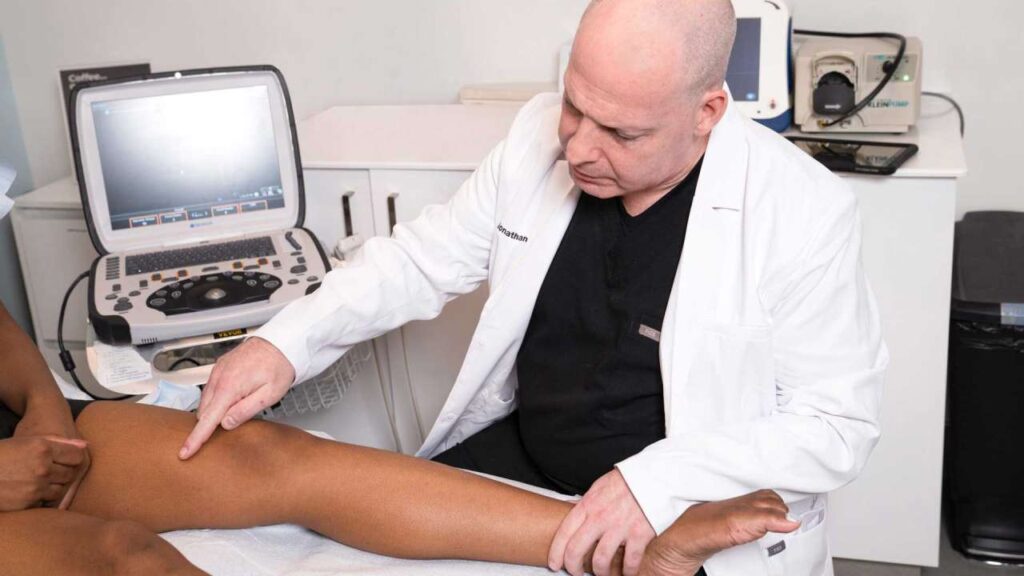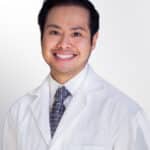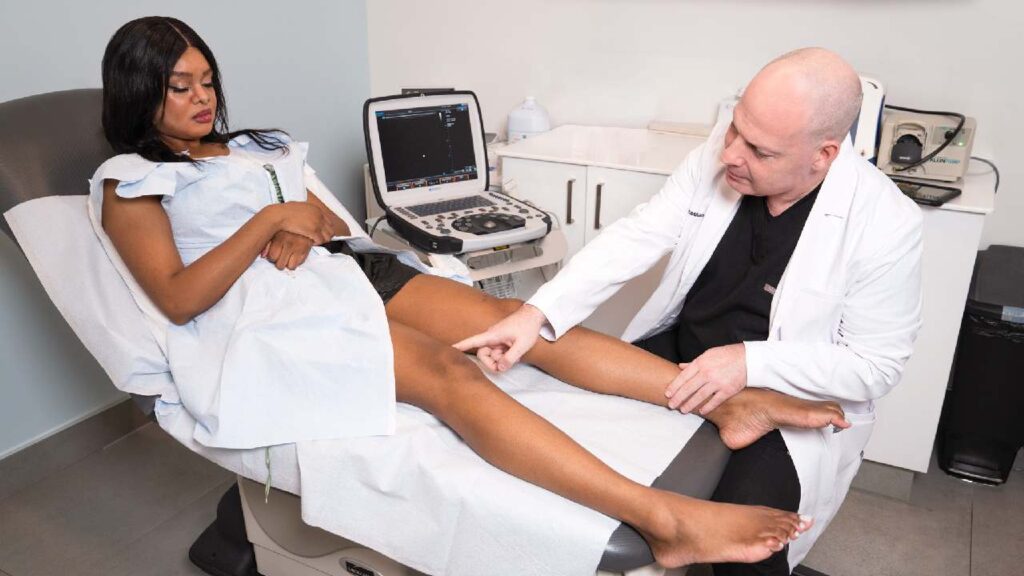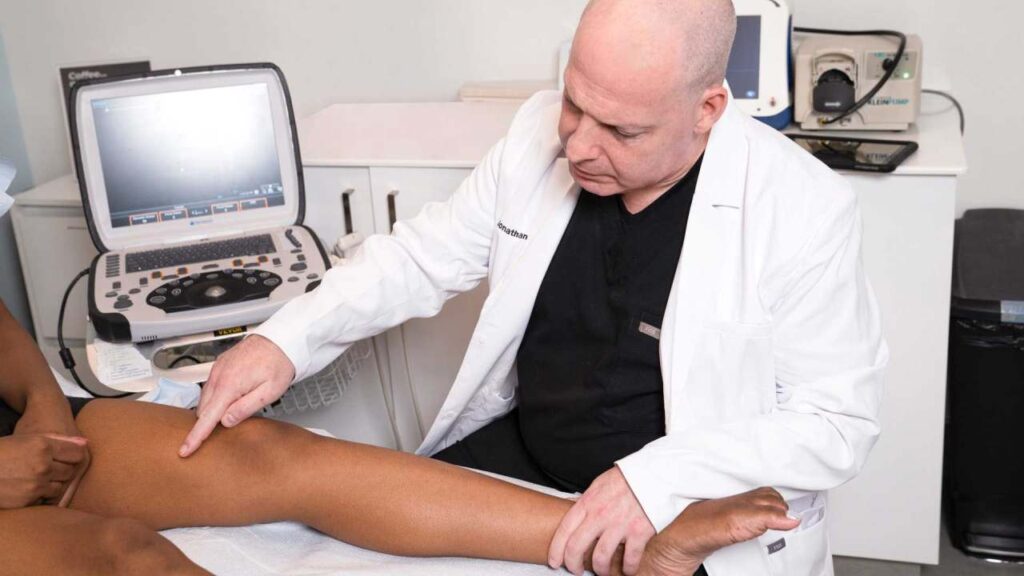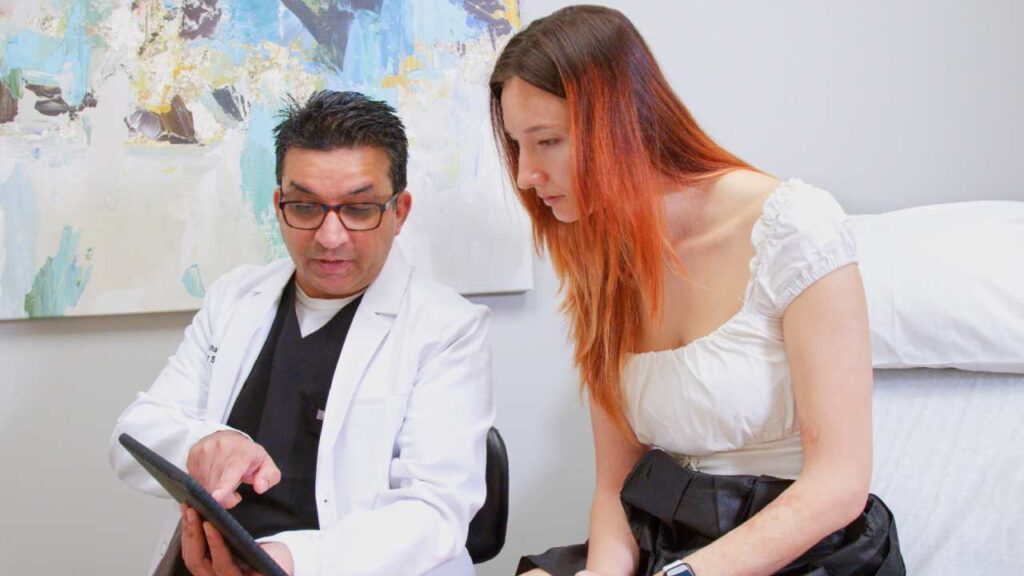You may have gone to your yearly check-up or booked an appointment with your family physician because you had painful legs, obvious surface-level spider veins, varicose veins, or other associated symptoms, and your primary care doctor encouraged you to see a vein doctor for specialized vein therapy. When entrusting someone with your health, it is critical to consider who will be treating you and what they will do. Click HERE to book an appointment to seek treatment with a vein doctor at our vein clinic in NYC, or keep reading to learn about how a vein doctor can help you!
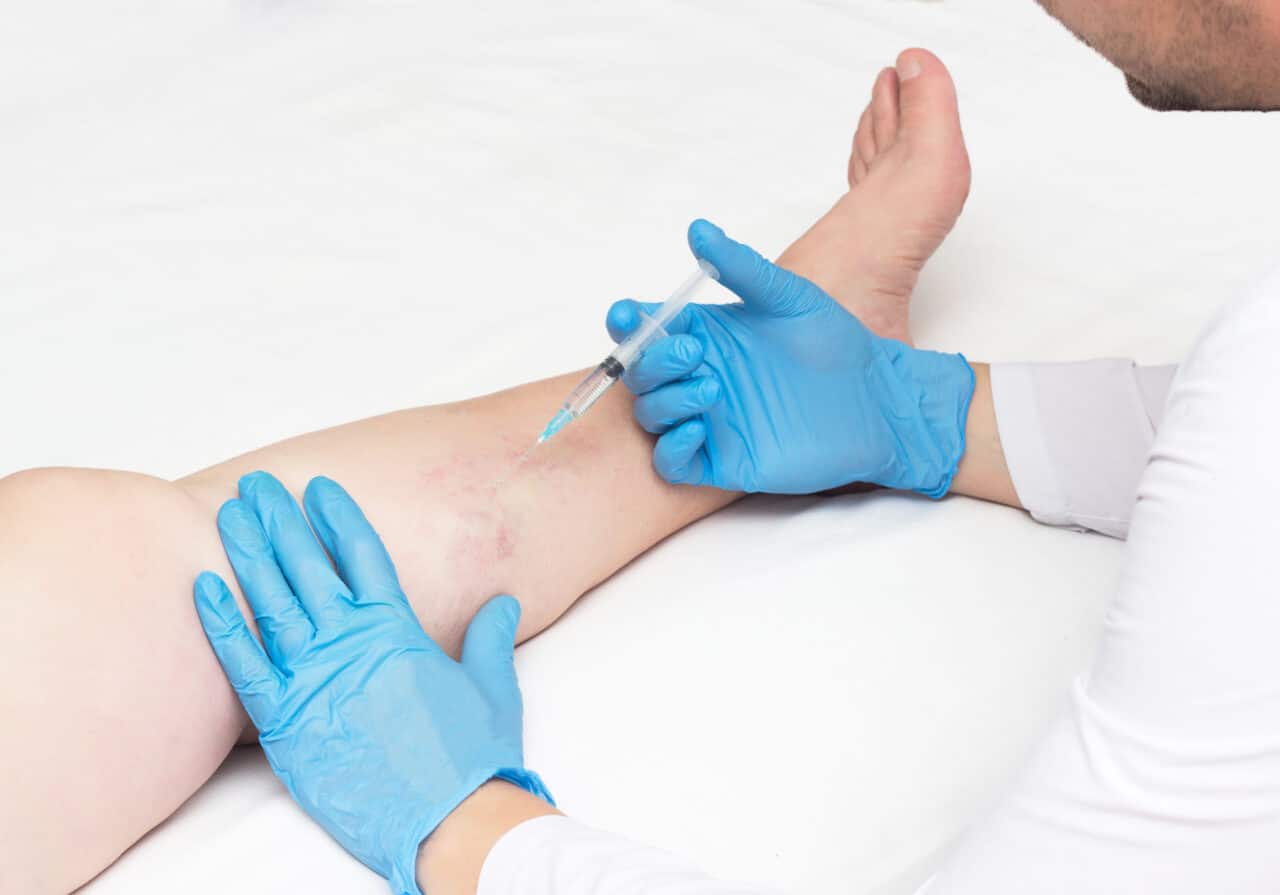
Vein Doctor = Phlebologist
A vein doctor is known as a phlebologist, and they can come from a range of medical specialties, such as cardiology, anesthesiology, and emergency medicine, as long as they have the necessary training to treat veins. When surgery was the sole effective treatment option for vein illness, vascular surgeons were the only clinicians who had the expertise and knowledge to treat veins. However, because of the development of minimally invasive procedures, any doctor can be trained to become a vein specialist.
Board-Certification
Being board-certified means that a doctor has undergone more training in the specialty field and has shown a high degree of experience in this area. This additional training a doctor has taken ensures that they are higher qualified than a non-certified doctor in this area, so it is important to make sure that you choose a vein center that employs board-certified doctors.
Other Characteristics
The best way to evaluate a phlebologist is to visit the clinic’s website and read about their credentials, success stories, and patient testimonials. It is critical to choose a vein doctor that is highly trained and skilled with ultrasonography and minimally invasive techniques so that you may be certain of having the best vein care possible. It is also critical that you choose a vein doctor who is caring, understanding, sensitive, and capable of communicating well with you at all stages of therapy.
How Does a Vein Doctor Diagnose Vein Diseases?
The symptoms of vein disease are subtle, but worsen over time and can be confused with the normal aging process, so if you have a significant number of visible veins, make an appointment at a vein center to see a vein doctor who can help you determine if you have a vein disease and if you need vein treatment.
When you go to a vein clinic, the vein doctor will try to get a comprehensive family history and physical picture of your health by asking you about your symptoms and evaluating if you have any risk factors.The vein expert will then perform a physical examination to look for unhealthy veins before ordering imaging of your legs if he or she feels you have venous insufficiency.
The best form of imaging for vein disease is Duplex Ultrasound. It combines Doppler, which lets the doctor see the speed and direction of blood flow in a blood vessel, with conventional ultrasound, which displays black and white images of the inside of the body, to provide the doctor with a lot of important information about your veins.
The ultrasound technician will start out by looking at the deep veins in the legs to ensure there are no blood clots, then scan spider or varicose veins that are causing pain or irritation.They will also make sure the valves in the saphenous veins (GSV and SSV) are working by checking that the blood is flowing in the correct direction.
Before your appointment for a Doppler ultrasound at a vein treatment clinic, we recommend that you drink a lot of water on the day of an ultrasound. The more hydrated you are, the larger your veins will be, which will make it a lot easier to see venous reflux on the Doppler ultrasound. Caffeine actually does the opposite and makes your veins constrict, so we would suggest that you avoid drinking any coffee, tea, or soda before your appointment.
At your vein treatment appointment, you will get the ultrasound done in a warm room while standing to maximize the amount of blood in the veins in the legs, which makes the blood flow and speed a lot easier to see on the ultrasound.
Medical Treatment
As mentioned before, the only surefire way to treat vein disease is to seek medical treatment from a vein doctor at a vein treatment center, so after you have been diagnosed, what are your options?
You will have three options that the vein doctor may present to you depending on your specific diagnosis: VenaSeal, varithena, and radiofrequency ablation. All of these treatment options essentially seal off any diseased veins that are causing blood flow issues in order to allow the blood to redirect through healthy veins. They all take less than a half-hour and cause minimal discomfort. You can go home or back to work after the procedure at the vein treatment clinic because there is no anesthesia or recovery time involved.
VenaSeal is a vein adhesive that is used to seal the saphenous vein in the leg that causes varicose veins, and doesn’t require any local anesthetic. The VenaSeal glue closes off the diseased vein almost immediately, and this seal will block the blood flow through that vein and eventually reroute it through the healthy veins in your legs. Varithena is a sclerotherapy foam that is injected into the vein to reduce the appearance of varicose veins by sealing off the damaged veins to reroute blood flow. Radiofrequency ablation, a non-surgical minimally invasive treatment, starts with the administration of a local anesthetic, followed by the insertion of a small catheter into the unhealthy vein using ultrasound. to deliver a harmless heat energy to the vein walls, causing them to close down.
It’s important to find a vein doctor who is trained in minimally invasive procedures so that you can be sure that you are receiving the highest standard of vein care.Our vein clinic in NYC is accessible by both Grand Central Station and Penn Station and is close to major landmarks such as the Empire State Building. The Vein Treatment Clinic New York has physicians who are passionate about your well-being and who can consult with you to help you heal. If you are ready to finally get treatment for your vein disease, check out the Vein Treatment Clinic for vein treatment today!
